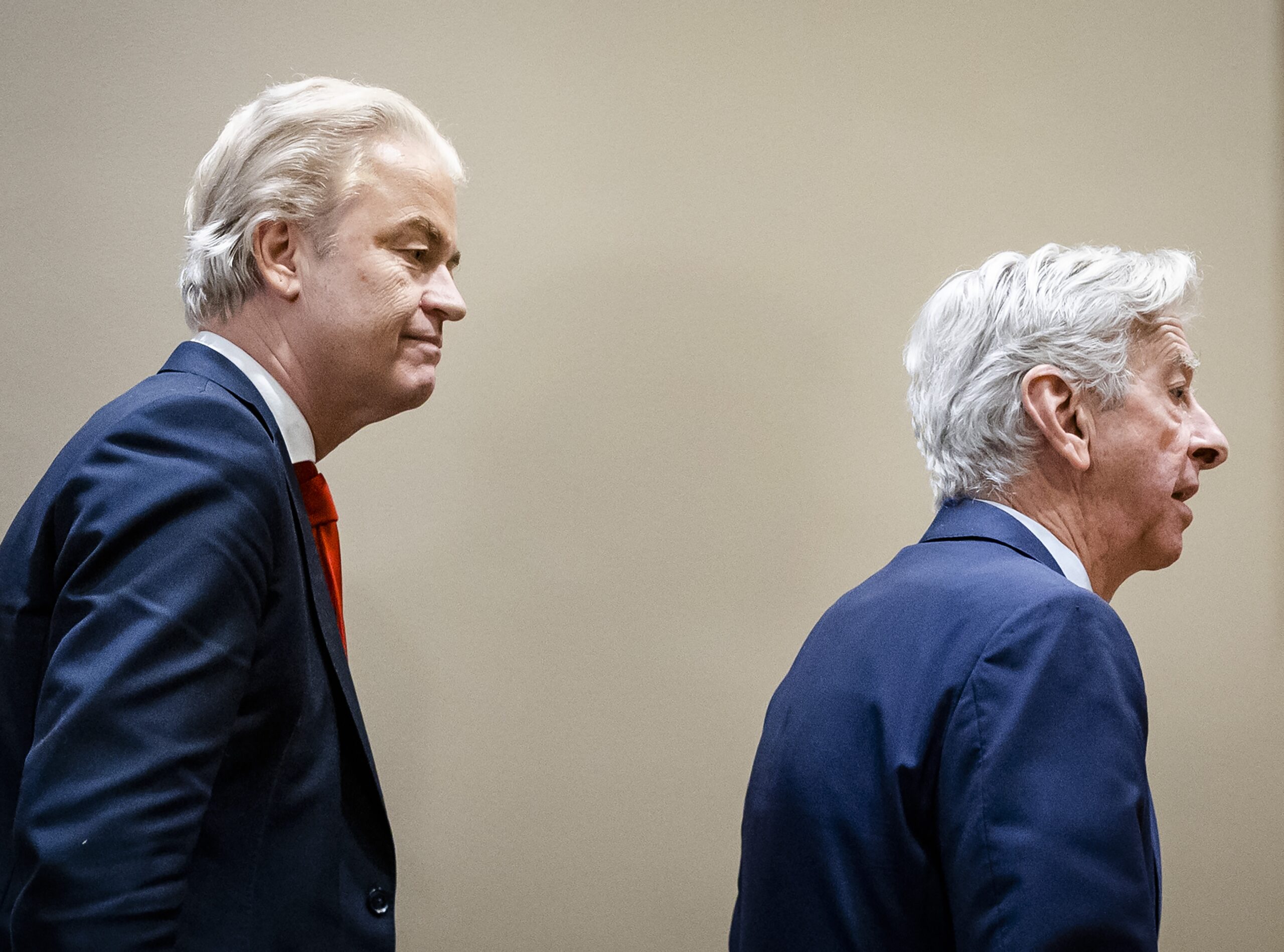Ethical queries cast doubt over Plasterk’s hopes of becoming PM

The chances of former minister Ronald Plasterk becoming the next Dutch prime minister receded over the weekend as doubts emerged about his suitability for the role.
Veteran troubleshooter Johan Remkes said ethical issues around Plasterk’s patenting of a cancer medicine were “extremely difficult” in the context of his appointment. “I would draw my own conclusions,” Remkes told TV programme WNL op Zondag.
Dilan Yesilgöz, leader of the VVD, one of the four right-wing parties that agreed last week to form the next cabinet, said it was up to the “largest party” to come forward with a candidate that could count on the “support of the rest”.
Plasterk, 67, has not been formally proposed as prime minister, but is understood to be the first choice of Geert Wilders, whose PVV party is the largest of the quartet.
A trained microbiologist, he set up a biotech company after leaving politics in 2017 that developed a vaccine for cancer in collaboration with Amsterdam’s UMC hospital.
Plasterk claimed patent rights to the medicine for his company, Frame Therapeutics, which he then sold to German pharmaceutical firm CureVac for €32 million. The UMC last year started an investigation into whether Plasterk breached ethical rules by claiming to be the sole innovator.
The issue could surface again now that CureVac has sought licensing rights in the United States, where incomplete applications can lead to a patent being invalidated.
Potential legal claims
If American regulators rule that Plasterk wrongly omitted his co-developers from the application it could trigger legal claims against him, patent specialist Koos Rasser told NRC.
An Amsterdam-based lawyer, Henri Sarolea, last week filed a criminal complaint against Plasterk alleging documentary fraud after he registered his company as a micro-enterprise in 2022, the year he sold it to CureVac.
Plasterk said in a reply that any inaccuracies in the company’s annual reports had been made “unintentionally,” while the patent application in the United States was the responsibility of CureVac.
“The former director of the AMC [now the UMC] and AMC researcher Jan Koster and I decided six years ago that I was the inventor on this patent application,” he said.
Labour minister
Plasterk served as minister for education and home affairs in two cabinets on behalf of the Labour party (PvdA). Since leaving politics he has become an outspoken critic of his former colleagues as a columnist for the Telegraaf, a popular right-wing newspaper.
Wilders appointed him to lead the first round of negotiations in December. But the talks ended on a sour note when Pieter Omtzigt, leader of the NSC party, accused Plasterk of withholding crucial financial documents and walked out.
Plasterk told MPs in the subsequent debate that Omtzigt had borrowed his government-issued limousine to travel to a hotel to brief journalists on the reasons for his departure, without informing Plasterk of the reason.
The former minister apologised to Omtzigt last week through a letter published in the Telegraaf, a move that was condemned as “utterly stupid” by Johan Remkes.
MPs are due to debate the provisional coalition agreement drawn up by the four parties – PVV, VVD, NSC and the farmers’ party BBB – on Wednesday.
The final stage of negotiations, when ministers are appointed, are usually chaired by the prospective prime minister, but in the absence of a candidate Richard van Zwol, one of the lead negotiators from the previous round, has agreed to stay on.
Thank you for donating to DutchNews.nl.
We could not provide the Dutch News service, and keep it free of charge, without the generous support of our readers. Your donations allow us to report on issues you tell us matter, and provide you with a summary of the most important Dutch news each day.
Make a donation